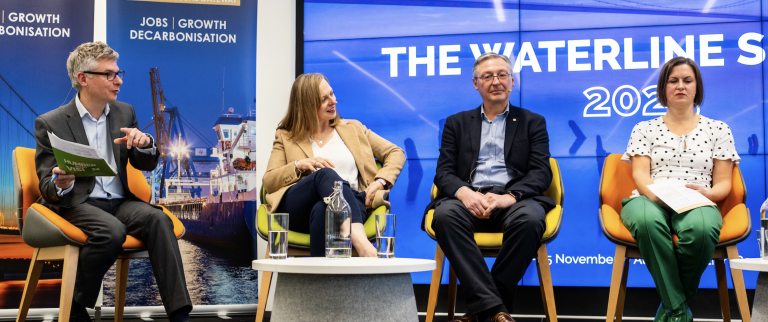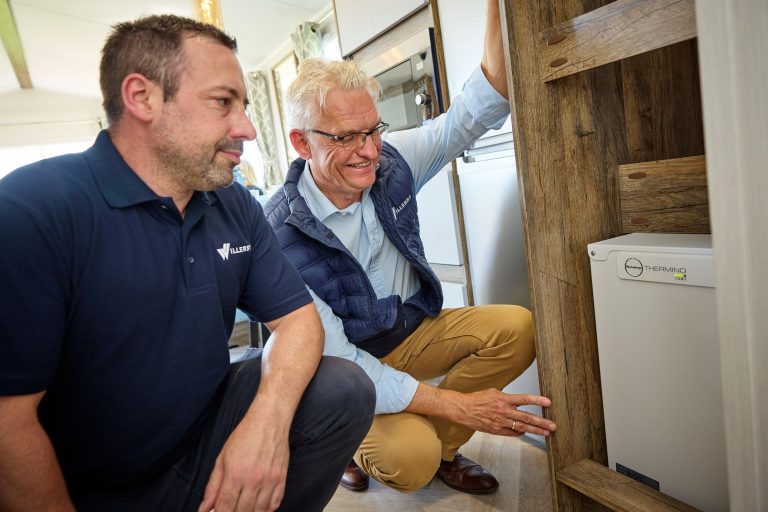Sheffield receives more than £19m for Parkwood Springs plans
Waterline Summit returns to the Humber
Government picks West Yorkshire to be UK’s third Investment Zone
Pensana and Yorkshire Energy Park sign letter of intent for magnet metal site
Keighley and Doncaster to share in levelling up funding of £1bn
“This funding sits alongside our wider initiatives to spread growth, through devolving more money and power out of Westminster to towns and cities, putting in place bespoke interventions to places that need it most, and our Long-Term Plan for Towns.”
Funding is spread across all corners of Great Britain, with the North West receiving £128 million, the North East £59 million, Yorkshire and the Humber £169 million and the Midlands £171 million in total. The government has drawn on the impressive pool of bids which narrowly missed out on funding in round two but were assessed as high-quality and able to deliver quickly.New collaboration allows green breakthrough in powering holiday homes
Boost for life sciences sector as West Yorkshire hosts England’s third Investment Zone
2 Sisters makes historic pledge in Coronation Food Project
2 Sisters Food Group President and owner Ranjit Singh Boparan has joined senior leaders from the UK food industry this week in a historic pledge in support of the Coronation Food Project.
It encourages food manufacturers like 2 Sisters, which operates in Grimsby, Scunthorpe, Leeds and Sheffield, to join FareShare’s innovative “Alliance Manufacturing” programme to redistribute even more surplus food to charities.
Mr Boparan said: “This project is a testament to the King and signals a significant step-up in the way our sector can support those in need. We’re leveraging the power of a formidable alliance of manufacturers and retailers never seen before, and I am delighted to be able to play a big role in delivering meals for those who most need it.”
“It is astonishing to realise that in the UK in 2023 people are struggling to feed themselves at a level not seen before. This cannot be right. It’s our moral responsibility to come together and drive change at this difficult time. Nobody should be going to sleep on an empty stomach. This is just the start of a journey and I’ll be working with my partner customers, FareShare and the IGD to ensure we grow this initiative in the months ahead.”
The Project intends to provide even more food to support the 13 million people in the UK experiencing food insecurity by targeting all forms of waste in the food supply chain and building on the food industry’s existing initiatives to redistribute surplus food to charities.
The Alliance Manufacturing programme, a vital element of the Project, seeks to unlock more surplus food for redistribution by bringing project members together to share their surplus, underutilised and donated resources in all forms – food, packaging, labour hours, and factory/distribution capacity. The central idea is that each resource in isolation has a limited impact. Still, new food sources can be efficiently created by combining them across multiple businesses along all parts of the supply chain.
By joining forces to promote best practices and teamwork across the industry, the goal of the Coronation Food Project is to reduce and redistribute surplus food waste, unlocking even greater social and environmental impact.
George Wright, CEO of FareShare, said: “The response from the food industry leaders and their teams has been incredible. I shared the idea with them, and they’ve really taken it on, working together to make it a reality. The food is already getting to our charities – school clubs, community centres and a whole spectrum of support services – and with so many families impacted by the cost-of-living crisis, it is making a difference already. We are all incredibly grateful to them. And it’s just the start. If everyone in the food industry joins the alliance, no matter how large or small, the combined force would be game-changing. If you’re reading this and you want to join, please email ceo@fareshare.org.uk.”












